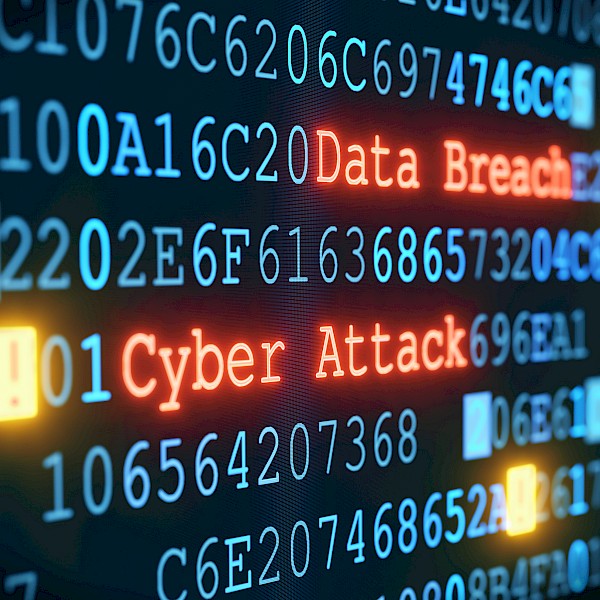The Tech impact of the Coronavirus within the Healthcare Sector



It is not an understatement to call coronavirus a global catastrophe. When the virus has run its course, the damage will be deep and wide ranging from loss of life through to significant economic disruption, which, in spite of government measures, will be felt across many different sectors.
One of the less anticipated risks industry professionals have warned of in recent weeks, is the cyber security risk to public health services. It is all too predictable that during times of disruption, nefarious actors seek to take advantage of the situation. Already during the course of this crisis, public healthcare services globally have been subject to targeted attempts to exploit their systems.


There have been reports of attacks on health services in the Czech Republic, the United States, Italy, Japan and France. This trend has also been observed by Sherrod DeGrippo, a senior director at cybersecurity firm Proofpoint, who notes the increase in attacks across the manufacturing, pharmaceutical, travel, healthcare and insurance sectors. On the healthcare front, she states: “When I say manufacturing, a lot of times it seems to be targeted against a subset of manufacturing, which is manufacturers that create hospital beds, medical equipment, those things you would associate with healthcare.”
While organisations are focused on preventing the spread and impact of coronavirus, hackers have seen an opportunity. In the UK, the National Cyber Security Centre have seen fit to release public guidance after seeing a spike in coronavirus related domain registrations and phishing attacks. Paul Chichester, Director of Operations at the NCSC has said: “We know that cyber criminals are opportunistic and will look to exploit people’s fears, and this has undoubtedly been the case with the Coronavirus outbreak.”
Sarah Wilkinson, Chief Executive of NHS Digital, has also spoken on the subject at the NHSD’s most recent board meeting. In a nod to the phishing scams she noted fraudsters “spoofing HMRC email addresses” and sending emails which offer recipients tax rebates associated with coronavirus, declaring this, the type of “opportunism” which is to be expected.


Even with increased visibility of risk, there is simply not enough resource for the NHS to fight on so many fronts. The NHS has, for example, delayed its annual cyber security audit by six months to allow senior leadership enough bandwidth to focus on tackling the immediate concerns of coronavirus. It is a decision that is undoubtedly understandable, especially given that an audit at present would likely give a skewed idea of the NHS facilities’ resilience to cyber attacks.
The NHS, of course, has recent history in this domain, having been targeted by the infamous WannaCry ransomware attack that hit in 2017 and cost the NHS £100 million. At the time, hackers took advantage of the fact that machines were running outdated operating systems. The concern is that not much has changed, and that history will repeat itself.


Perhaps the one cause for optimism during this period of cyber security risk, has been the response of the cyber security community more generally. Various industry companies and bodies have reached out to the UK healthcare sector in an effort to provide their services on a voluntary basis. We note the C5 Alliance which launched the Collective Cyber Defence for Healthcare initiative, providing free access to certain cyber products for hospitals, clinics and other medical facilities in the UK and Europe. Likewise, Lisa Forte, a partner Red Goat Cyber Security, and Daniel Card, from PwnDefend, have setup Cyber Volunteers 19 – an effort to provide support to healthcare services in the UK and Europe who are responding to cybersecurity incidents.
Demand from the healthcare sector for security experts, infrastructure and architecture professionals has risen dramatically since the start of the coronavirus pandemic in response to potential attacks.
It is anticipated that there is a significant organisational deficit when it comes to cybersecurity in the healthcare sector in the UK. We expect that as capacity frees to tackle other critical concerns, mandates for cyber security companies will increase in the medium term future. A catastrophic global pandemic such as coronavirus will necessitate the creation of continuity plans that cover “what-if” scenarios that were unthinkable just a month ago. As well as the short term project work to restore healthcare defences, significant thinking will need to be done to ensure that the UK healthcare sector is able to more nimbly face down the cyber security risks that black swan events such as coronavirus pose in the future. The corollary of all this, is that cyber security professionals will very much find their expertise in demand as time progresses.
Enquire NowSimply provide us your contact details and we will be in touch |
Empiric is a dynamic technology and transformation recruitment agency specialising in data, digital, cloud, security and transformation. We supply technology and change recruitment services to businesses looking for both contract and permanent professionals.
Empiric are committed to changing the gender and diversity imbalance within the technology sector. In addition to Next Tech Girls we proactively target skilled professionals from minority groups which in turn can help you meet your own diversity commitments. Our active investment within the tech community allows us to engage with specific talent pools and deliver a short list of relevant and diverse candidates. For more information contact 02036757777 To view our latest job opportunities click here. |